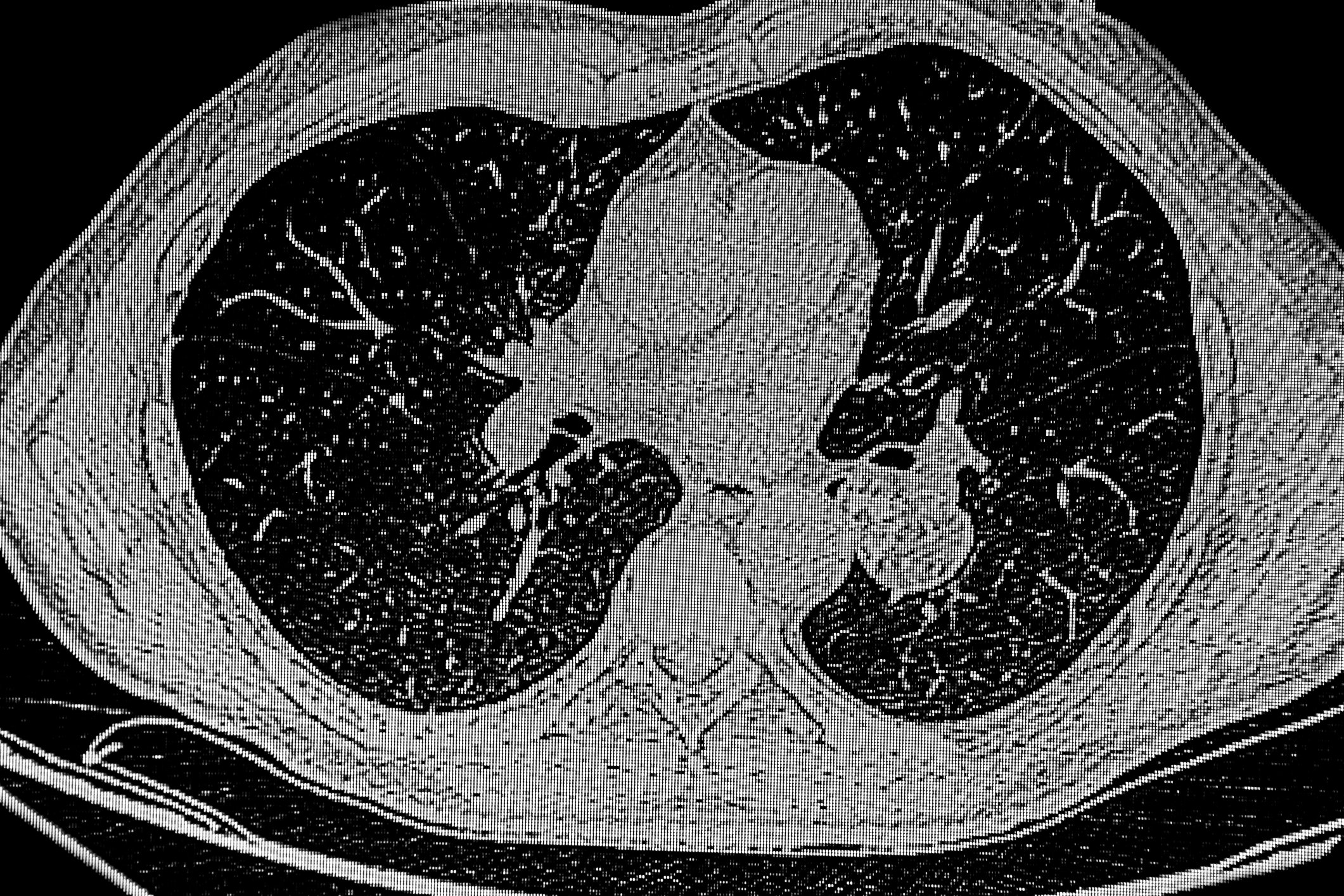The first representative of the Janus kinase (JAK) inhibitor class to be approved for atopic dermatitis was baricitinib. In an extensive study program, this selective and reversible inhibitor of JAK-1 and JAK-2 has demonstrated rapid relief of itching and skin lesions – even in areas of the body that are often difficult to treat. Real-world data is now available that confirms this positive balance.
Pruritogenic cytokines that are involved in the pathogenesis of atopic dermatitis (AD) and trigger their cytokine response via the JAK-STAT signaling pathway are interleukin (IL)-4, IL-13 and IL-31 [1]. Upadacitinib and abrocitinib selectively inhibit JAK-1, whereas baricitinib has an equally high specificity for JAK-1 and -2 [2,3]. All three oral JAK inhibitors (JAK-i) are characterized by a rapid onset of action and often lead to a reduction in itching within a short period of time, as post-hoc analyses of the BREEZE study program on baricitinib show (box) [4–6].
| Significant reduction in itching as early as week 2 In the BREEZE-AD1 and BREEZE-AD2 phase III trials, monotherapy with baricitinib and in BREEZE-AD7 a combination therapy of baricitinib with topical corticosteroids (TCS) was investigated [4,5]. Post-hoc analyses of pooled data from the BREEZE-AD1/AD2 studies show that a significantly higher proportion of study participants receiving baricitinib 4 mg daily (n=248) compared to placebo (n=493) achieved an NRS£ score of 0/1 at week 2 (8.9% vs. 1.6%; p<0.0001) and that these effects persisted or intensified up to week 16 (14.1% vs. 3.9%; p<0.0001) [6]. Even when combined with TCS, the differences between baricitinib 4 mg (n=111) vs. placebo (n=109) were already significant at week 2 (16.2% vs. 2.8%; p=0.0064) and this continued until week 16 (22.5% vs. 8.3%; p=0.0287) [6]. However, there is now also interesting new data on the question of how baricitinib performs in AD patients in everyday life, e.g. from registry studies and patient surveys. |
| £ NRS = numerical rating scale; 0=no itching, 10=worst imaginable itching |
TREATgermany register study
TREATgermany is one of the largest AD registries with over 1600 patients currently included. In a recent analysis, data from 81 adult patients with moderate to severe AD who received baricitinib between October 2020 and August 2022 were evaluated [7]. The data from the initial examination and the three-month follow-up were analyzed with regard to various outcome parameters. The mean objective SCORAD** value changed from 45.9 at the beginning of the study to 28.2. In terms of EASI, the mean value decreased from 21.5 to 9.3. The EASI$-50 and EASI-75 rates rose to 60% and 44% respectively. Subjective symptoms, including itching and quality of life (DLQI&), also improved significantly. In summary, baricitinib showed good efficacy and tolerability in this interim analysis of the TREATgermany population. Data on long-term efficacy and safety are expected in the further course of the registry study. Compared to biologics, closer monitoring is required during therapy with JAK-i. Since Janus kinases mediate the effect of several inflammatory cytokines, JAK inhibition is associated with an increased risk of infection [1].
** SCORAD = SCORing Atopic Dermatitis (25-60 points=moderate; >60 points=severe; maximum score=103)
$ EASI = Eczema Area and Severity Index
& DLQI = Dermatology Life Quality Index
Multinational patient survey
A cross-national online questionnaire study investigated satisfaction with baricitinib therapy in patients with moderate to severe AD using a four-point Likert scale [8]. Adult AD patients who had been treated with baricitinib for ≥4 weeks in routine clinical practice in France (n=48), Germany (n=53) or the UK (n=69) were surveyed. The average age was 39.3 years, 59% were female and the mean time since AD diagnosis was 20.9 years. At the start of baricitinib therapy, at least 10% of the body surface was affected by AD in 28% and the mean pruritus NRS was 6.8 (SD 2.0), which corresponds to significant pruritus. 19% classified their AD as moderately severe, 79% as severe. After treatment with baricitinib, which lasted a median of 4 months (range: 1-24), the patients reported an improvement, with 56% stating that the AD was only mild or had almost disappeared. It was found that most patients were either satisfied (n=58; 34%) or very satisfied (n=53; 31%) with baricitinib therapy. High rates of ‘very satisfied’ and ‘satisfied’ were recorded for the control of AD, including a reduction in itching (36% and 56%), a reduction in pain in the skin area (26% and 51%) and an improvement in sleep quality (16% and 55%). 63% and 19% of patients stated that the pruritus had ‘greatly improved’ and ‘very greatly improved’ respectively since the start of treatment. This reflects the overall high level of patient satisfaction, particularly with regard to itching relief. This is a significant finding considering that one of the main goals of AD is to treat pruritus quickly and effectively.
Congress: Dermatologie kompakt praxisnah
Literature:
- Klein B, Treudler R, Simon JC: JAK-Inhibitoren in der Dermatologie – kleine Moleküle, grosse Wirkung? Übersicht über Wirkmechanismus, Studienergebnisse und mögliche unerwünschte Wirkungen. JDDG 2022; 20(1): 19-25.
- Bonnekoh H, Butze M, Metz M: Charakterisierung der Effekte von neuen Therapien zur Behandlung der atopischen Dermatitis auf den Pruritus. JDDG 2022; 20(2): 150-156.
- Nezamololama N, et al: Emerging systemic JAK inhibitors in the treatment of atopic dermatitis: a review of abrocitinib, baricitinib, and upadacitinib. Drugs Context. 2020 Nov 16;9:2020-8-5. doi: 10.7573/dic.2020-8-5.
- Simpson EL, et al: Baricitinib in patients with moderate-to-severe atopic dermatitis and inadequate response to topical corticosteroids: results from two randomized monotherapy phase III trials. Br J Dermatol 2020; 183(2): 242-255.
- Reich K, et al: Efficacy and safety of baricitinib combined with topical corticosteroids for treatment of moderate to severe atopic dermatitis: a randomized clinical trial. JAMA Dermatol 2020; 156(12): 1333-1343.
- Schlöbe A, et al: Minimal-To-No-Itch with Baricitinib in Patients With Moderate to Severe Atopic Dermatitis: Results From Three Randomized, Phase 3 Clinical Trials, P038. JDDG 2024; 22, Issue S1: 1-40.
- Traidl S, et al: Treatment of moderate-to-severe atopic dermatitis with baricitinib – results from an interim analysis of the TREATgermany registry, P024. JDDG 2024; 22, Issue S1: 1-40.
- Augustin M, et al: Treatment satisfaction of adult patients with moderate-to-severe atopic dermatitis treated with baricitinib in France, Germany, and the United Kingdom: final results from a cross-sectional patient survey, P039. JDDG 2024; 22, Issue S1: 1-40.
DERMATOLOGIE PRAXIS 2024; 34(3): 41 (published on 17.6.24, ahead of print)











